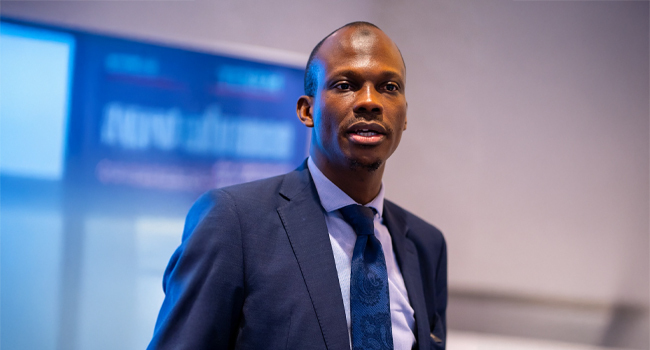
As we commemorate International Women’s Day 2025, the theme’s resounding message, ‘the urgent need to accelerate gender equality and empower women across all spheres of society’ resonates profoundly. This call to action is especially critical in governance, where inclusion is not just a moral imperative but a strategic necessity for unlocking a nation’s full potential.
At the Aig-Imoukhuede Foundation, our mission is to transform public service delivery by empowering leaders and institutions. While I am not a public servant myself, my role involves galvanising support from the private sector to ensure that the public sector is equipped with the tools, resources, and leadership needed to drive meaningful change. In this journey, I have had the privilege of witnessing the extraordinary contributions of women in governance and the transformative impact of their leadership.
The strength of diversity in governance
The inclusion of women in governance is not just about fairness; it is about effectiveness. Effective governance thrives on diversity; a rich interplay of experiences, talents, and ideas. Women, with their unique insights, resilience, and unwavering commitment to service, play an indispensable role in shaping policies, driving reforms, and fostering inclusive development.
Research and real-world examples consistently demonstrate that diverse leadership teams, including those with strong female representation, drive better outcomes. Nigeria’s history is replete with examples of women who have defied norms and broken barriers. From the legendary Queen Amina, a fearless warrior and ruler whose military skills and leadership expanded her kingdom’s influence, the pioneering activism of Funmilayo Ransome-Kuti, who championed women’s rights and social justice, to the daring Professor Dora Akunyili, whose reforms at the National Agency for Food and Drugs Administration and Control (NAFDAC) saved countless lives, Nigerian women have long been at the forefront of shaping the nation’s trajectory.
I often hear the question, “Why this focus on inclusion? Does it mean women have to become like men?” Absolutely not. It’s about recognising the unique perspectives women bring to the table. Women often prioritise issues that benefit everyone, like healthcare, education, and social welfare. Look at Rwanda, where women make up 61% of parliament, the highest percentage in the world. The country has introduced policies focused on healthcare and education leading to reduced maternal mortality rates and increased primary school enrollment.
A 2020 McKinsey report found that companies with gender-diverse executive teams were 25% more likely to achieve above-average profitability. This principle applies equally to governance, where inclusive policies can drive economic growth and stability. Consider the appointment of Dr. Ngozi Okonjo-Iweala as Finance Minister in the early 2000s and how that led to significant economic reforms, including debt relief and improved fiscal transparency. There’s also Mrs. Ifueko Omoigui Okauru, who, as the Executive Chairman of the Federal Inland Revenue Service (FIRS) from 2004 to 2012, revolutionized Nigeria’s tax administration system. Under her leadership, FIRS achieved unprecedented revenue growth, modernized tax collection processes, and introduced innovative reforms that significantly boosted Nigeria’s non-oil revenue. These are powerful examples of women driving real, lasting change.
The fact that the last three heads of the Civil Service of the Federation have been women also emphasises the importance of women in public service. Women are proving that they are more than capable of handling the most important roles in the nation. It’s time to move beyond rhetoric and take concrete steps to ensure women’s full and equal participation in Nigerian governance. We can do this by actively challenging stereotypes and biases that limit women’s opportunities and investing in capacity-building programmes that equip women with the skills and knowledge they need to succeed in leadership roles.
Investing in women’s leadership
The advancement of women in public sector leadership requires a shift from recognition to active investment. While recent strides are commendable, we must move beyond acknowledging potential and commit to empowering women. Capacity-building programmes and leadership training are critical for equipping women with the necessary tools for success. Programmes like the Aig-Imoukhuede Foundation’s Public Leaders Programme serve as examples. The Foundation has several training initiatives with about 50% of beneficiaries being women, effectively bridging the skills gap and emphasising competence over gender.
Through these programmes we create a level playing ground for both female and male leaders, challenge entrenched stereotypes and cultivate a pipeline of capable women leaders poised to drive transformative change. More capacity-building programmes, especially those targeted at the realities of women leaders in the public sector, are necessary.
A call to action for all
To the women reading this: Your voice matters. Your leadership is needed. Do not allow fear or doubt to hinder your aspirations. Seek growth opportunities, cultivate strong networks, and uplift one another. Your success is not solely your own—it paves the way for future generations of women and girls. And to the men in our society be allies in this journey, inclusion benefits everyone. Support the women around you, advocate for their advancement, and challenge the biases that restrict their potential.
Building a more inclusive future requires the commitment of all stakeholders. Together, we must challenge stereotypes, amplify the voices of women leaders, and create pathways for their continued success. Let us work towards a Nigeria where gender equality is not just an aspiration but a lived reality.
Akinsemoyin, Director of Partnerships, Aig-Imoukhuede Foundation.
[AD]






